Category: Tools
You are viewing all posts from this category, beginning with the most recent.
Digging the Lost Tapes Restoration of Grimsby's No. 1 Band in 1996
Hovercraft (UK) were a real live band, briefly, in 1995-96.

We hovered in, made a lot of noise, broke down and sank without a trace, all in the space of nine months.

We were number one in the first, and possibly only, South Bank Demo Charts in the Grimsby Evening Telegraph.
There’s no chance of a reunion. That will be a relief to many. Our drummer emigrated to Australia. Our singer-songwriter-lead guitarist is MIA, last seen in India (or Boscombe). Our bass player plays in a semi-professional covers band. And our guitarist/tech guy is me.

Every few years I get out the digitised versions of all our old demo and home recording tapes and remix and (re)master them with the he latest free tools available. In the early days, that was Audacity. More recently, it’s Soundcloud’s and Bandlab’s (free) online mastering tools.
The goal is always the same. To transform the lofi, degraded analog recordings preserved on mangled old cassette tapes that were digitised using the cheapest USB analog to digital converter tape deck available twelve or fifteen years ago into something resembling what we actually sounded like in our rehearsal room, the studio, the pub, and - most importantly - in our own imaginations. (If you’re interested in learning more about mastering and how Bandlab mastering works there’s a couple of good articles here.)
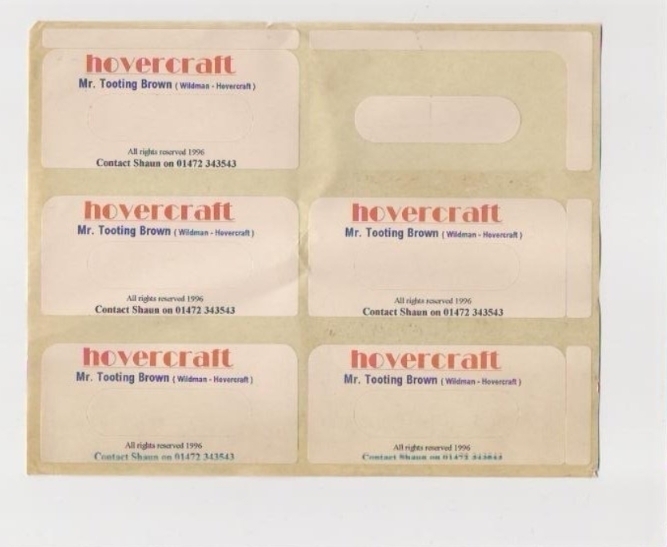
Last October I went down the same old nostalgia rabbit-hole. Every time I think I’ve made the tracks sound better with the latest software, which usually means adding reverb or preset effects (which are likely a mixture of reverb and compression). The end result is something which sounds a bit louder, more atmospheric and less rough around the edges. Although all the reverb and compression can also make for a lot of additional noise, when noise is an integral part of the original sound AND the degradation of the original sound that was digitised.

Anyway, it’s all a bit of fun and allows for reconnecting with Ron Nasty, our old bass man (now known as Ronnie Nice). Ronnie and me had a lot of fun writing the band’s not entirely factual or unelaborated back story. Putting that into Claude.ai produced more amusing results, as did giving it some of the lyrics to the songs. These AIs can make pretty good music critics if you tell them that’s what they are, even if they’ve never heard a note. Claude is now like the fifth Beatle.
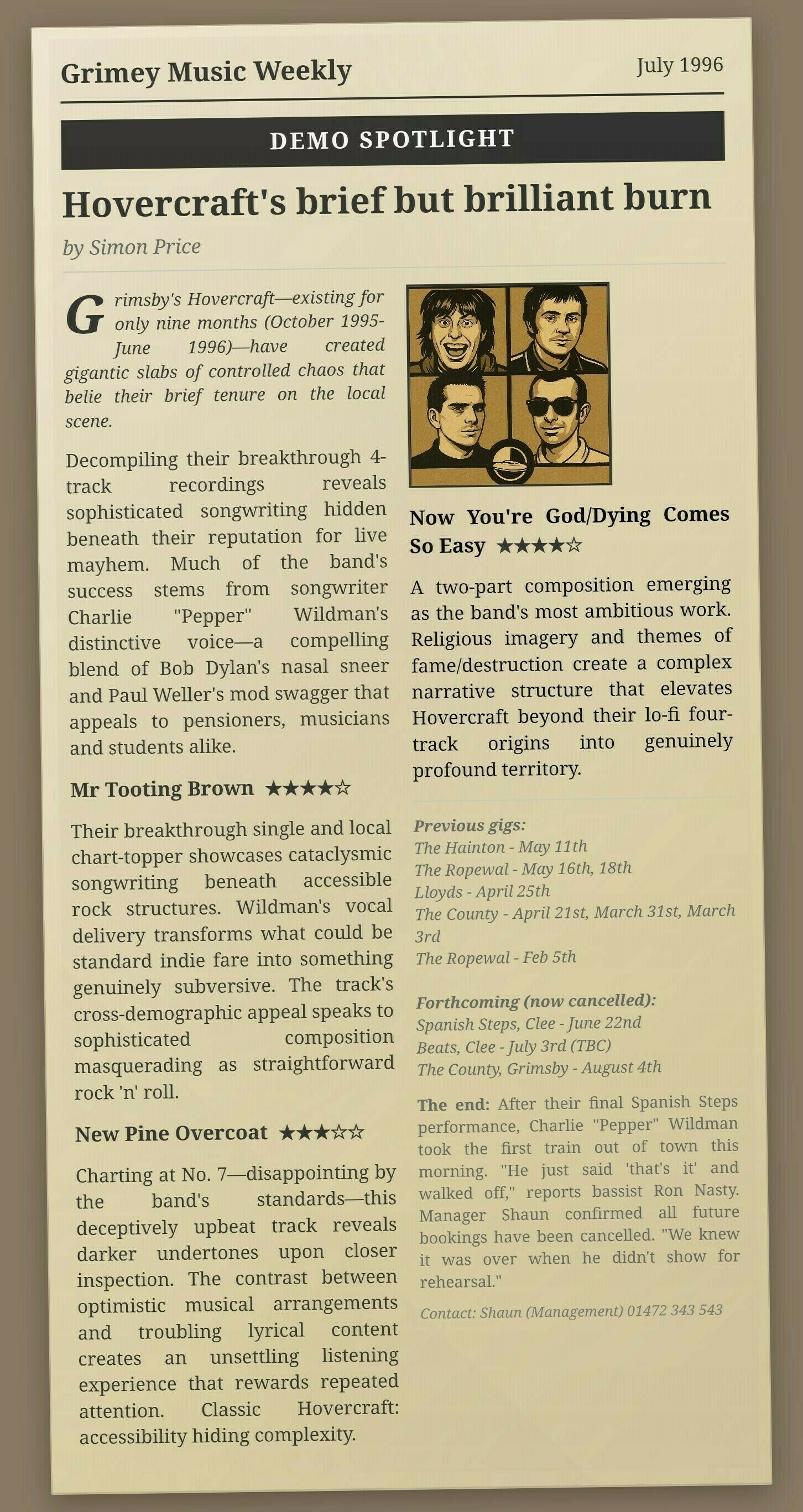
And that was what got me thinking… Can AI listen to music? That’s how I discovered Suno Music, Microsoft’s online AI music creation beast. And it is a beast. (Other beasts are available.) Me and Ron started off simply pasting in lyrics to the songs Ron had lovingly transcribed by listening to the old songs over and over again (only the other day I realised I had some of the original lyric sheets, but don’t tell Ron). Click on
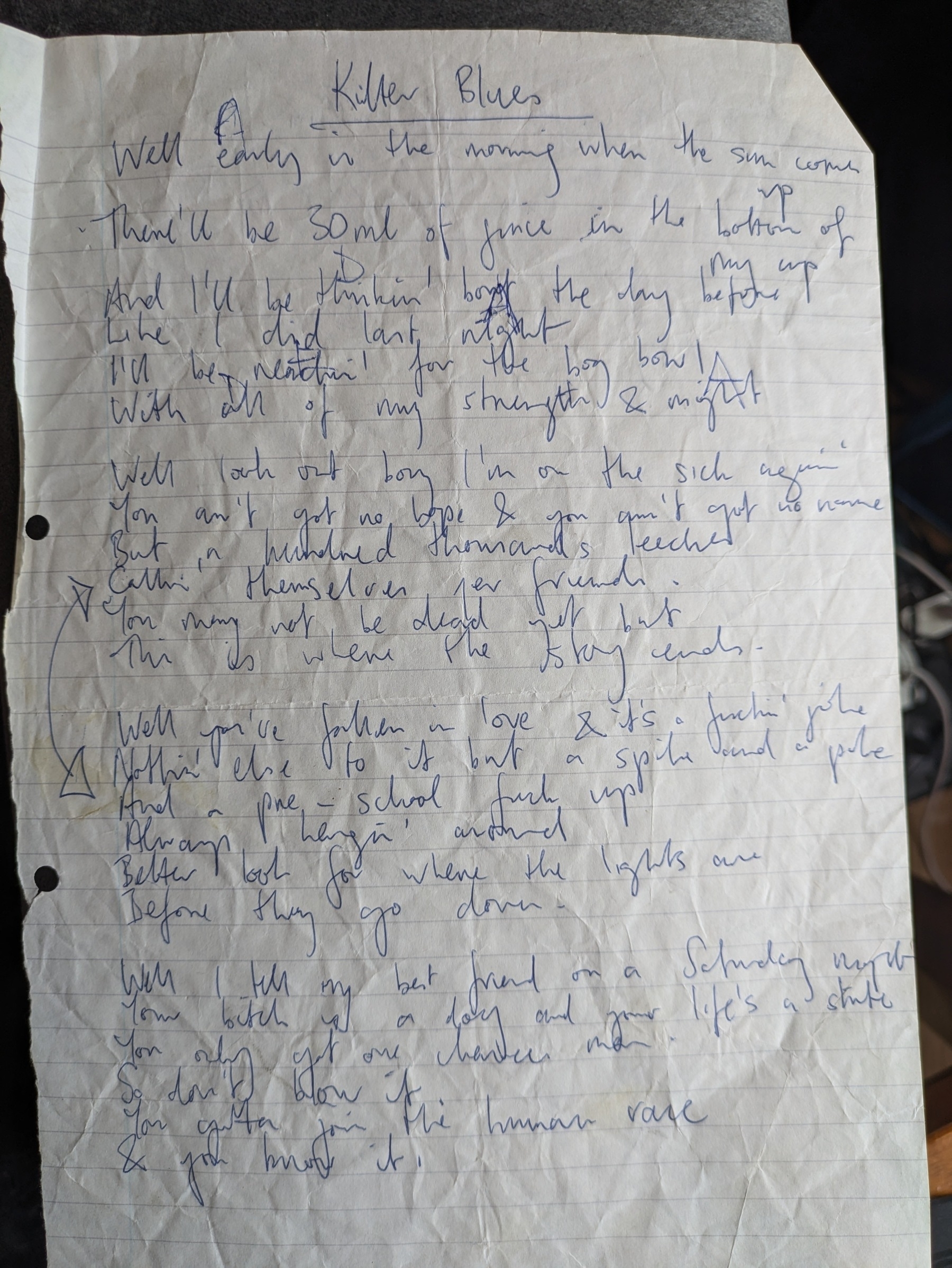
That was back in March. The originals, if you wanna listen.
Then I realised you could (then) upload and use two minutes of original audio. Not quite a recreation or restoration of the original songs, but getting close. We also enjoyed doing an album of Hovercraft songs as if covered by a female singer in a more chillout style.
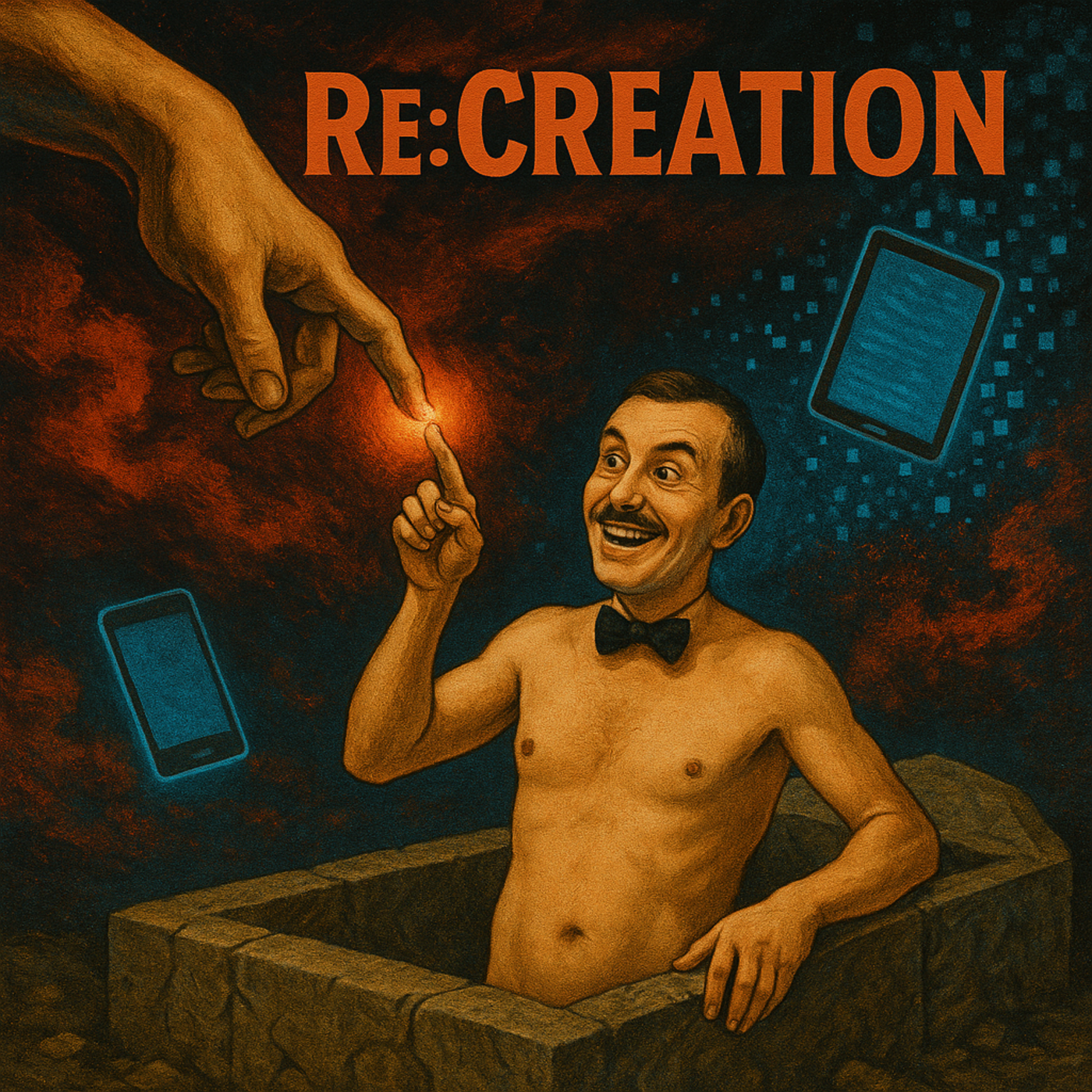
Finally (!), Suno v4.5 now allows up to eight minutes of uploaded audio. Frustratingly, I haven’t been able to recreate some songs at all (Mr Tooting Brown seems impossible), and still the AI seems to insist on missing out intros, outros, middle bits, solos, lead guitar work. But it’s getting a lot closer to an actual recreation of the original songs and band sound and style.
We also had fun generating song and album covers with ChatGPT.

Lastly, to reiterate, all of the songs bar the originals were created using Suno. Most of the later ones I downloaded the stems, uploaded them to Bandlab and remixed and mastered them there, before uploading to Bandcamp.
I’m not expecting anyone to listen to any or all of this, but hope it’s a useful contribution for anyone wondering what or how to go about a similar restoration project, or indeed, to create your own new songs (I’ve also done a few of those, too). Some people are pretty sceptical about AI generated art, and that’s fair enough. But this has been tremendous fun, and it’s great for me, Ron and everyone else who remembers our band to be able to recreate, restore, produce and hear the old songs again in a way that doesn’t hurt the ears so much.

While it was never the original “plan”, we’re now looking at releasing tracks through Bandlab’s distribution service, and reworking some of the songs to make them poppier and more accessible to a wider audience. And we’re looking for Charlie Pepper. Last heard of in the Bournemouth area ten years ago.
We should put a card in the local Spar shop window: “Chilled out lamppost wanted to front retro space pop band”. That should do it.
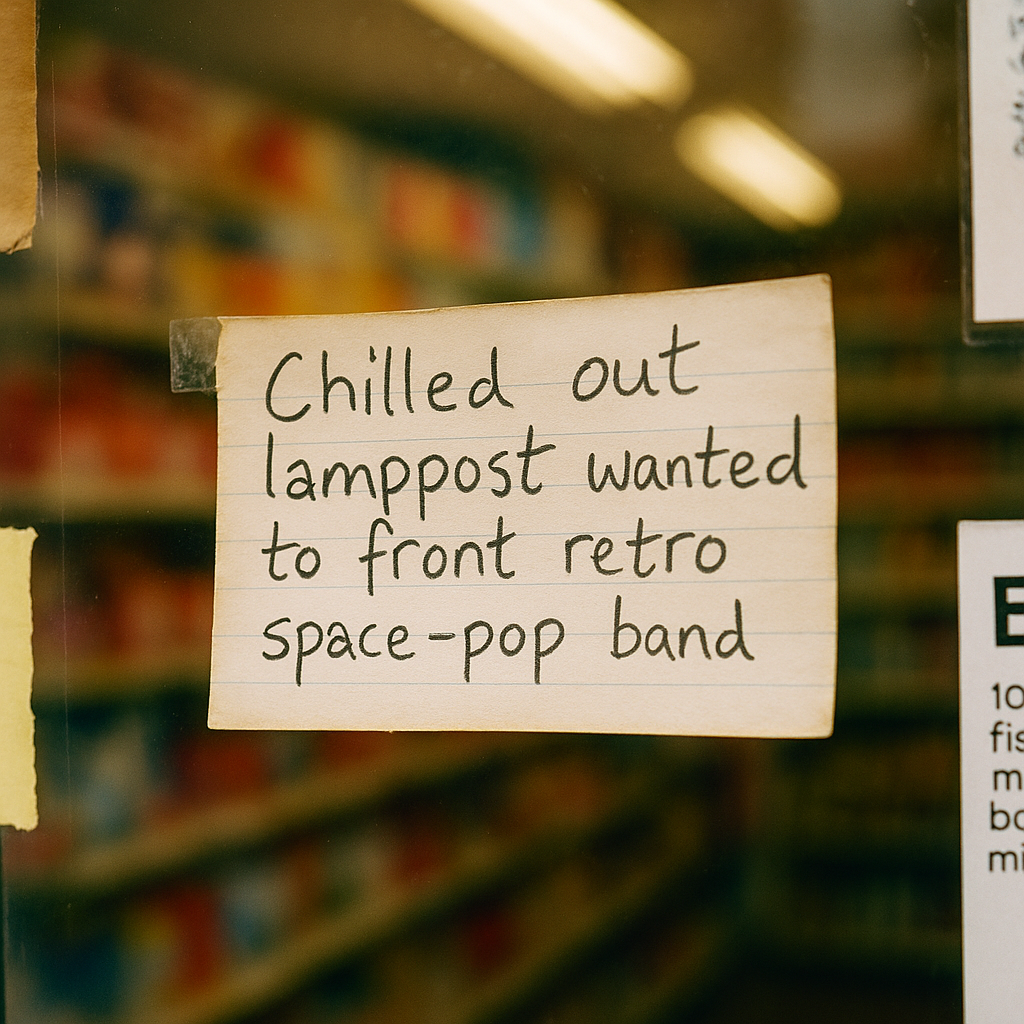
I recently spent far too much time creating a wholly unnecessary (but nice to have) app with Gemini. Everything worked perfectly in the private sandbox environment, but we couldn’t get the final Wordpress embed to function (Wordpress security?), despite numerous of Gemini’s over-confident assertions that “this time it will definitely work”. I now have NetiflyNetlify, Github Gist and Pages accounts I didn’t know I needed. Talk about yak shaving!
Tbf to AI, I know (of) a few very successful plausible bullshitters, and most of them are all over the internet it’s trained on.
This is brilliant – a piece told in screenshots (which is probably an accessibility nightmare…) showing how ChatGPT’s confident tone can make complete bullshit seem plausible at first.
Read the whole thing.
Aside from our journey home taking four hours longer than expected, we had an amusing if disconcerting experience once we set off again.
According to our dumb electronic navigator, as we left Peterborough, the closer we got to home the longer it would take us to get there - the estimated journey time somehow kept increasing the further we travelled.
Fortunately, when we got to the Black Cat roundabout, we happened to notice that staying on the A1 would save us 46 minutes. A no brainer. But our stupid satnav said nothing and would gladly have continued sending us up the junction to the A421 and down the M1 on its preferred but needlessly extended drive.
We’re up to our eyeballs in AI, but unsupervised, my toaster is a wannabe arsonist and my satnav can’t tell me the quickest way home.
Oh, ffs. First it was Porridge Radio and now it’s my beloved Kiwi Browser that’s a dead duck.
A bit late in the day, but a handy and relatively easy to use Python script that automates bulk downloading Kindle books before tomorrow.
defragg.com/bulk-download-kindle-books/ defragg.com
After “fixing” my pyromaniac toaster I have now, somehow*, reconnected my anti-social music player with the internet.
Time for a cup of tea.
*Fiddled around with various router settings.
So far so good
Six weeks into my new full-time role at work with the additional two days a week focussed on fundraising for a new youth work.
I’ve scoped about 15 potential grant funders, small and large, and submitted 4 applications or pre-applications.
It seems to be grant application season as many of the closing dates are in February and March.
Unfortunately, one funder switched their closing date to Thursday last week after previously advertising it as Friday (The Wayback Machine agrees with me). Another closed their online form the day before or on the morning of their published closing date (Friday). Luckily, perhaps, they didn’t remove the live application form page I had bookmarked so I could still submit.
It will be annoying if our applications are disregarded in these two cases, although the lesson is don’t wait until deadline day.
I’m not beating myself up about it. We only had a few days to put something together, and I was chasing/waiting on my boss to draft and agree final wording. It’s a learning curve for all of us, and lots we can do better.
AI tools were genuinely helpful, and also provided useful feedback on our applications - need to remember to do that step before submitting them next time.
A better all round social work experience for everyone involved. They should be able to move to a four day week.
Ealing Council slashes admin work by 44% with new AI tool ealing.nub.news
